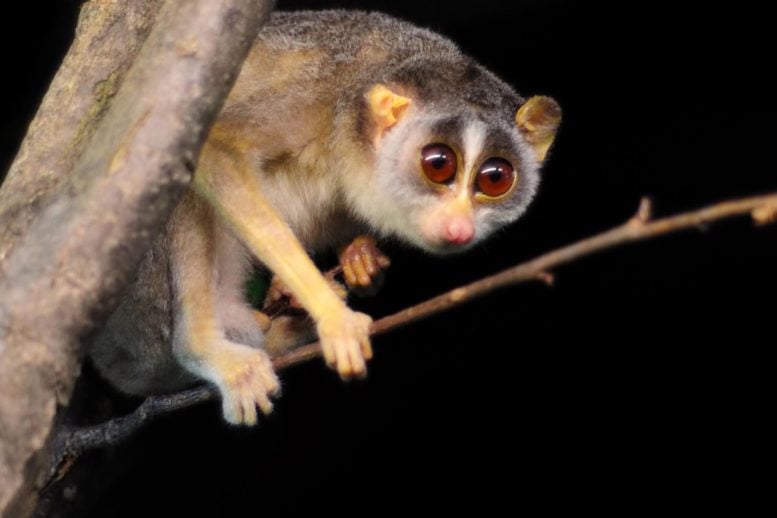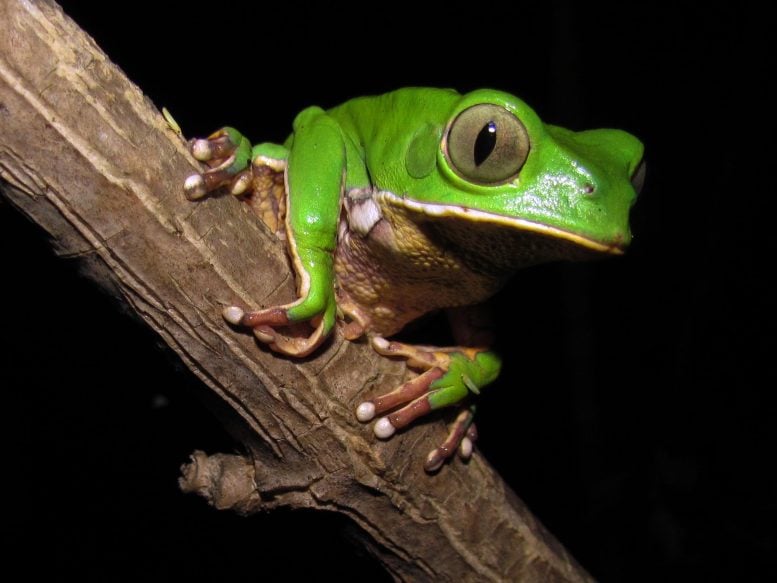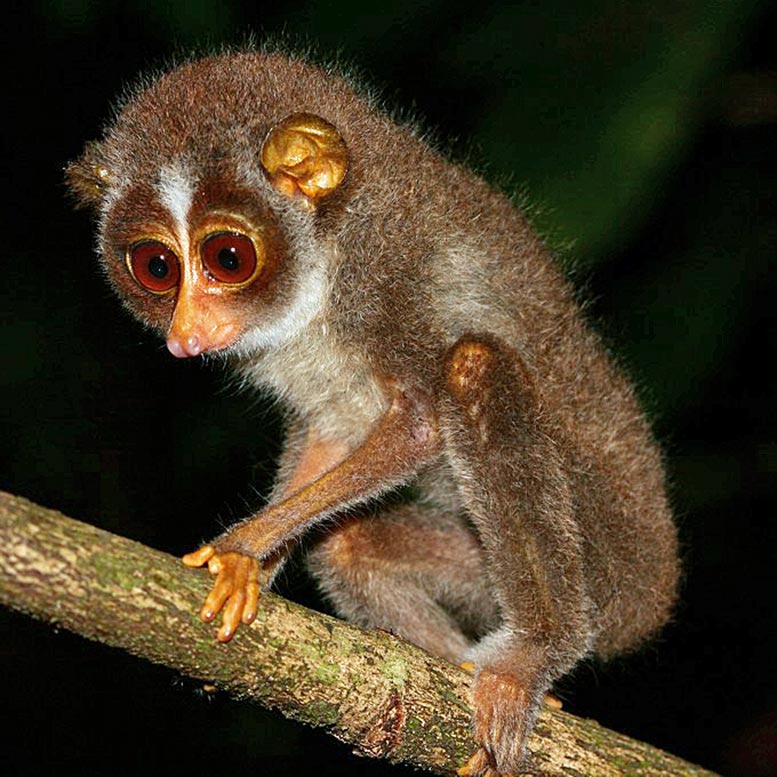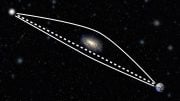
The new database TetrapodTraits covers over 33,000 species, integrating traits to aid in biodiversity research. It helps correct data gaps and biases, improving understanding of tetrapod distribution and conservation needs. Pictured here is a slender loris.
Researchers developed TetrapodTraits, a comprehensive database featuring over 33,000 tetrapod species, aimed at enhancing global biodiversity studies.
This tool addresses knowledge gaps and data inconsistencies by including various traits like body size and habitat. Their analysis highlights the necessity for more accurate data to improve conclusions about species distribution and conservation statuses.
TetrapodTraits – a global database of animals with four feet – has been developed by researchers. Its data can now be applied for better ecology, evolution, and conservation research. Mario Moura of the Universidade Estadual de Campinas, Brazil, and Walter Jetz of Yale University, US, published this work today (July 9th) in the open-access journal PLOS Biology.

The challenges of detecting species with small sizes or nocturnal activity, such as the Walking Leaf Frog (Phyllomedusa burmeisteri) from Brazil, contribute to data gaps in natural history. Credit: Mario R. Moura (CC-BY 4.0)
Tetrapods, which include amphibians, reptiles, birds, and mammals, are generally well-documented species, which makes them useful as models in global biodiversity studies. However, gaps in our knowledge about many of these species, data inconsistencies, and shifting scientific names can lead to biased conclusions about biodiversity. To help address this issue, researchers created TetrapodTraits, a comprehensive database containing more than 33,000 tetrapod species that includes traits such as body size, habitat, ecosystem, geography, when the animal is active and whether it is threatened by humans.
In compiling the database, researchers revealed multiple gaps in our global tetrapod knowledge. For example, animals are more likely to have incomplete data if they have smaller bodies, are active at night, or live in tropical regions. The team filled these gaps by predicting the missing data based on existing observations. They found that using the completed data set changed biodiversity patterns informing which kind of species are commonly found in a region.

Data gaps in natural history may arise due to challenges in detecting canopy-dwelling or nocturnally active species, such as the Slender loris (Loris tardigradus) from Sri Lanka. Credit: Alexander Pyron (CC-BY 4.0)
This new work reveals the scale of our missing tetrapod data and provides a comprehensive assessment of gaps and biases across different tetrapod groups. This is important because missing and biased data can lead to incorrect conclusions about how an ecosystem is functioning, and a species’ risk of extinction. The researchers conclude that while more data collection is needed, TetrapodTraits can lead to less biased results for studies of tetrapod ecology and conservation.
The authors add, “Our research utilizes artificial intelligence to uncover biases in biodiversity data and offer guidance for enhancing the effectiveness of field research and sampling strategies.”
Reference: “A phylogeny-informed characterisation of global tetrapod traits addresses data gaps and biases” by Mario R. Moura, Karoline Ceron, Jhonny J. M. Guedes, Rosana Chen-Zhao, Yanina V. Sica, Julie Hart, Wendy Dorman, Julia M. Portmann, Pamela González-del-Pliego, Ajay Ranipeta, Alessandro Catenazzi, Fernanda P. Werneck, Luís Felipe Toledo, Nathan S. Upham, João F. R. Tonini, Timothy J. Colston, Robert Guralnick, Rauri C. K. Bowie, R. Alexander Pyron and Walter Jetz, 11 July 2024, PLOS Biology.
DOI: 10.1371/journal.pbio.3002658









Be the first to comment on "Unmasking the Unknown: TetrapodTraits Exposes Critical Gaps in Biodiversity Data"